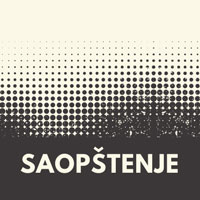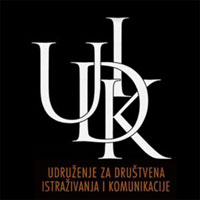(srpski) Neznanje, atavizmi i etnicizacija kulture sećanja

Sorry, this entry is only available in srpski.


Sorry, this entry is only available in srpski.

Sorry, this entry is only available in srpski.

 Over the past decade, there has been a growing interest in how the memory of past crimes informs and shapes state policies and international relations. Social scientists, except historians, had largely ignored the Holocaust despite its centrality to many of their concepts and theories and the need to view the crime from the standpoint of various disciplines.
Over the past decade, there has been a growing interest in how the memory of past crimes informs and shapes state policies and international relations. Social scientists, except historians, had largely ignored the Holocaust despite its centrality to many of their concepts and theories and the need to view the crime from the standpoint of various disciplines.
A multidisciplinary perspective on the Holocaust is offered in the book „Politics, Violence, Memory: The New Social Science of the Holocaust“, published by Cornell University Press. The book explores the sources and measurement of antisemitism, explanations for collaboration, rescue, and survival, accounts of neighbor-on-neighbor violence, and the legacy of the Holocaust in contemporary Europe.

Sorry, this entry is only available in srpski.

Sorry, this entry is only available in srpski.

 The proposed amendments would lead to a backsliding in standards, instead of improving the legal framework
The proposed amendments would lead to a backsliding in standards, instead of improving the legal framework
The Humanitarian Law Center (HLC) has today submitted to the Ministry of Justice of the Republic of Serbia its comments on the text of the Draft Law on Amendments to the Criminal Procedure Code(CPC) and on the Draft Law on the Amendments to the Criminal Code (CC).
After pointing out that one month’s timeframe for public consultations is unduly short, the HLC would like to emphasise that the proposed amendments to the two organic criminal laws not only fail to contribute to the improvement of criminal legislation, but actually undermine the standards achieved standards.
On 12 May 2021, the Ministry of Justice established the working groups to amend the CPC and CC. The public was informed of their activities for the first time on 26 September of 2024, when a call for public consultations was announced. After three years of non-transparent work by the working groups, the Ministry left only one month for public debate on the two systemic penal laws. This is unacceptable. During this time, it has been practically impossible to become familiar with all the proposed amendments, analyse their implications and offer adequate solutions.

Sorry, this entry is only available in srpski.

Sorry, this entry is only available in srpski.